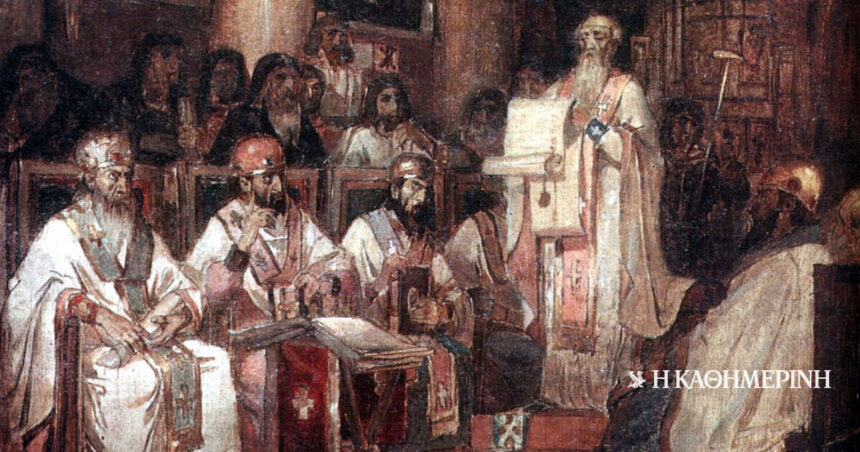Its large capital Byzantine It is political management by the emperors of religious conflicts within the empire. In almost every biography of a great emperor there is a chapter, sometimes oligos and sometimes extensive, which describes and analyzes the religious policy he followed, the problems he faced, and their influence on Byzantine society. Indeed, an emperor can be judged as successful or failed according to his political position against the great religious challenges of his time, regardless of whether he was prudent in managing his state finances or whether he successfully tackled his external enemies.
In 527 he climbed the imperial throne the Justinian Ione of the most important emperors of the thousandths of Byzantine history. From the outset, Justinian set his central objective the rebuilding of the Empire in its old prestige, which influenced his religious policy. In order to indulge in the struggles for the recovery of the West, the emperor followed a Compromise Policy with the Pope of Rome. In 527 and 528 he took action against the heretics and in 529 he closed the Athens School, satisfying the Pope’s desire. In the 530s he launched a series of persecutions against the Monophysites.
The Empress advised Justinian to use the Monophysites milder.
However, his policy was often influenced by his wife Theodora. The Empress recommended that Justinian to use the monophysites in a milder way, considering that, If the Empire wanted to maintain its power and prestige in its eastern provinces, Egypt, Syria and Palestinehe had not to displease their inhabitants, who were largely faithful to this doctrine. Following Theodora’s calls, in 543 the emperor issued a “word” in the capital, in order to reconcile the Orthodox and Monophysites. His effort failed miserably. When Theodora died prematurely in 548, the Orthodox openly expressed their dissatisfaction with the course of the empire in the religious field. In general, one observes that Justinian’s jokes in his religious policy have divided Byzantine society.
As part of Justinian’s efforts to reconcile the faithful of the two warring doctrines, the Convene of the Ecumenical Council in Constantinoplewhich lasted from May 5 to June 21, 553. The Council condemned the heresies by confirming the decisions of the Fourth Ecumenical Council of Chalkidona (451 AD), that Christ has two nature, perfect divine and perfect human, which are “united”. Although he succeeded in condemning the followers of Nestorianism, he failed to reconcile the Orthodox, that is, the faithful of the decisions of the Halkidonian meeting with the Monophysites.
Column: Myrto Katsigera, Vassilis Minakakis, Antigoni-Despina Poumenidou, Athanasios Syroplakis




